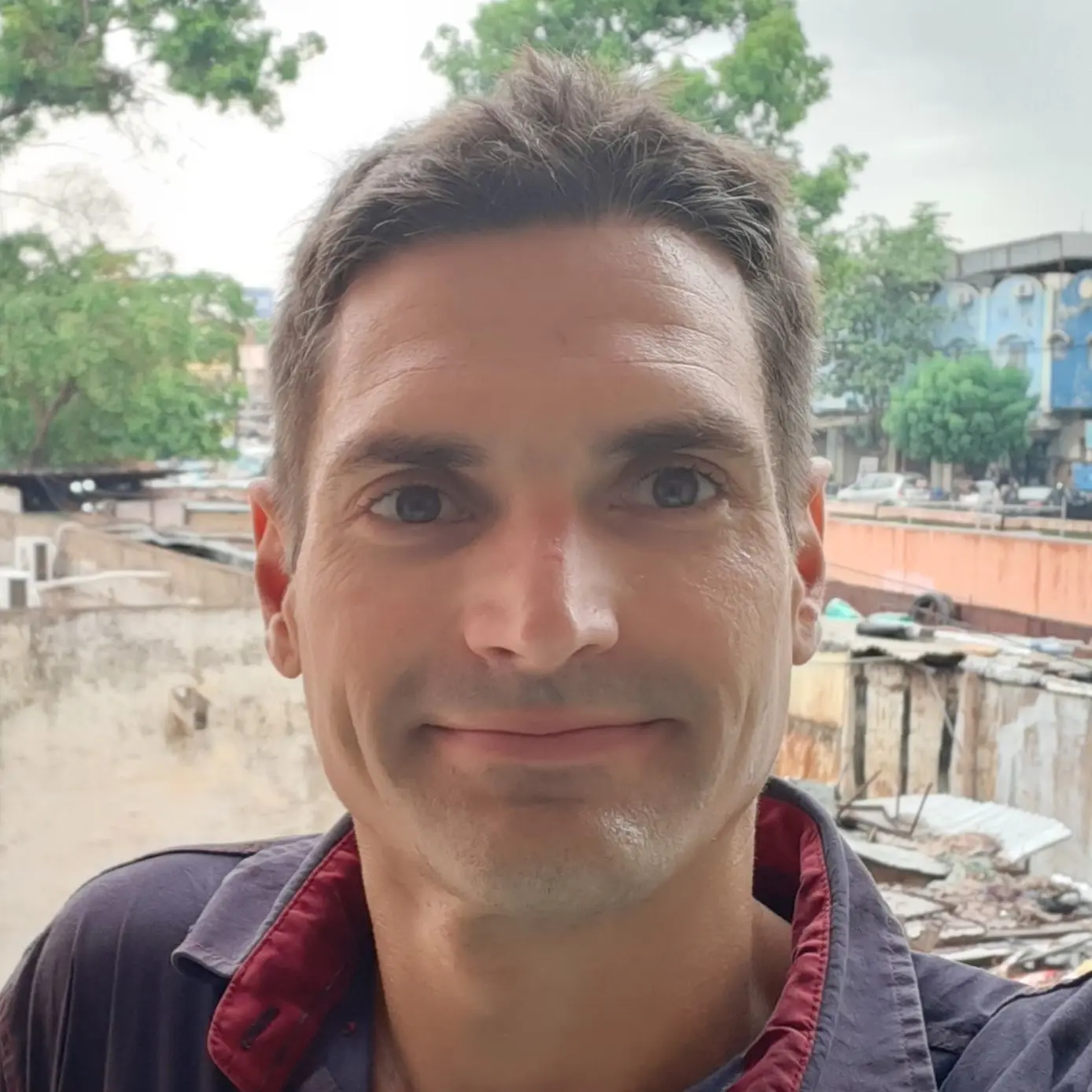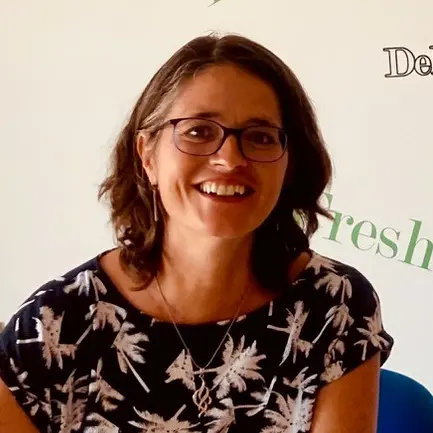Peace, resilience and
social cohesion
Our work on peace, resilience and social cohesion builds on the concept of ‘positive peace’ linking conflict transformation to inclusive and sustainable development. We advise public, private and non-profit organisations to help build systemic resilience in fragile and conflict-affected environments. We support learning and dialogue on community mediation, conflict sensitivity and transformation, service delivery among host and refugee communities, justice sector reform, stakeholder engagement including vulnerable groups. We contribute to the design, delivery and evaluation of programmes and actions aimed at generating impact and building resilience and social cohesion in fragile and conflict-affected communities, including through humanitarian-development-peace Nexus partnerships.
According to OECD figures (2025), contexts of high or extreme fragility are home to 25% of the world’s population (2.1 billion people), who account for 72% of the world’s extreme poor. This share is projected to surge to 92% by 2040. While the link between fragility and development challenges is undisputed, the definition of fragility and its correlations with conflict are matters of debate among scholars and practitioners. In our work we use and combine related concepts and tools developed by the African Development Bank (AfDB), the Organisation for Economic Cooperation and Development (OECD) and the World Bank; we largely use OECD’s multidimensional analytical framework to capture the complexity of fragility across six, interlinked dimensions (economic, environmental, political, security, societal, and human).
Going beyond the initial state-centric understanding of fragility, the focus is now more systemic considering public authorities and institutions, communities, private sector, civil society organizations and individuals as both actors in and entities being affected by fragility and conflict. Understanding the dynamics of fragility and conflict as well as stakeholders’ resilience to related challenges is therefore a cross-cutting aspect of how we support effective international development in such contexts. We work with public, private and non-profit organisations that are willing to create positive impact in fragile and conflict-affected situations (FCAS); we offer tailored advice on policies, programmes, and organisational processes that, informed by the complexity of fragility, can support the delivery of impactful and responsible action. To the extent possible this includes well-targeted contributions to stakeholders’ resilience and collective capacities to foster inclusive governance and social cohesion.
Conflict affects millions of people globally through violence, political instability, social unrest and disrupting access to public services (health, education, justice and others). To be effective, development initiatives in fragile and conflict-affected situations (FCAS) must be conflict sensitive. Strengthening local resilience and social cohesion in FCAS can truly generate social transformation as long as systems and capacities are enhanced on conflict transformation. Fostering dialogue, supporting learning processes and facilitating concrete initiatives are key for unlocking such potential.
Our team helps bring forward a systemic approach to mediation, conflict transformation, social cohesion and peace. We understand peace within a broader ecosystem that includes political dynamics, diplomacy, humanitarian aid, and development cooperation. Different dimensions of peacebuilding, conflict prevention and peace consolidation are to be conceived together and interlinked in such a way that they enhance each other’s effectiveness and increase positive impact: be it through peace mediation, political dialogue, reconciliation; promotion of democracy, rule of law and human rights; inclusive governance; security sector reform (SSR), and disarmament, demobilization and reintegration (DDR); economic recovery and stabilization; supporting social and cultural cohesion; environmental and resource management; or transitional justice.
More specifically, “transitional justice” refers to the tools and processes societies use to address large-scale human rights violations during or after conflict, or during transitions from authoritarianism to democracy. It involves truth-seeking processes, accountability for past crimes, reparations, reforms, and memorialization.
Where possible we foster synergies in these areas with complementary work on meaningful stakeholder engagement, public sector development, democratic governance, justice sector reform, paralegal counselling at grassroots level, innovation, and impact optimisation.
Since the 1990s, crises and conflicts are increasingly understood as protracted and long-term phenomena. Impactful interventions in these contexts call for integrated approaches that leverage the combined know-how of humanitarian, development and peacebuilding actors in strengthening the resilience of individuals, communities, and public systems. In the OECD ‘DAC Recommendation on the Humanitarian-Development-Peace Nexus’ (2019), the Nexus approach refers to the aim of strengthening collaboration, coherence and complementarity among these actors based on their respective comparative advantage. The Nexus synergies shall reduce vulnerabilities, better meet needs, reinforce risk management, and help address root causes of conflict while enhancing actors and dynamics of resilience.
However, putting these principles into practice remains a challenge due to different operational needs, organizational cultures, procurement processes, time and budget constraints, lack of dedicated funding or overlooked political dimensions of the Nexus.
We accompany public and non-profit organisations in identifying the strengths, challenges and opportunities of the Nexus approach in their own operational and political environments. We advise on the best ways to design and review their (strategic and operational) partnerships in fragile and conflict-affected contexts and to optimise and demonstrate partners’ (contributions to) collective impact.
Forced displacement and migration are pressing global challenges with deep implications for peace, resilience, and social cohesion. According to the UNHCR, more than 123 million people worldwide were forcibly displaced due to conflict, persecution, violence, and climate-related disasters by the end of 2024. In the same year, the International Organization for Migration (IOM) reported approximately 304 million international migrants living outside their country of birth, which equivales to around 3.7% of the global population. These figures underscore the scale and urgency of coordinated responses that uphold human dignity, strengthen host communities, and foster social cohesion.
At C-lever.org, we partner with governments, civil society, and international agencies to develop systemic solutions that address the root causes of displacement and inequality, build institutional resilience and foster inclusive economic development. Our approach is grounded in human rights, participatory engagement, and conflict- and gender-sensitive development, ensuring that migration does not exacerbate tensions but contributes to social cohesion and shared prosperity. C-lever.org supports inclusive governance, reinforcing local service delivery, building institutional capacities for coordinated and sustainable migration management, and fosters labour market inclusion through market systems development. Our team brings expertise in policy analysis, stakeholder facilitation, and context-sensitive programming to support durable solutions for refugees, internally displaced persons, and migrants. We align our strategies with the Global Compact on Refugees (GCR) and the Comprehensive Refugee Response Framework (CRRF)—advancing equitable responsibility-sharing, local integration, and sustainable development. By integrating humanitarian and development approaches, we help create the conditions for peaceful coexistence and long-term resilience in migration-affected contexts.




